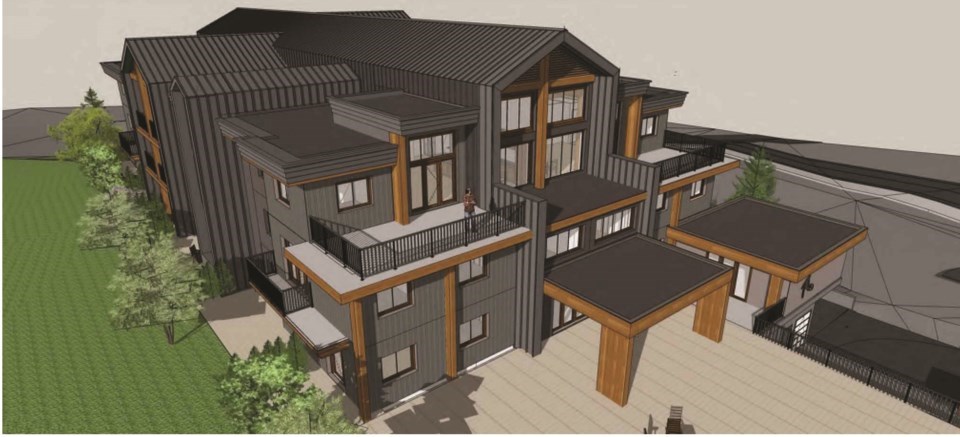I, too, could not resist your call for explanations, and I wholeheartedly agree with Ms. Chiasson’s recent letter (Pique, Sept. 15, “Untangling the Sea to Sky housing knot”). This is a complex issue, so I’ll try to be as concise as possible—each paragraph could be its own article.
Zoning is the tool used to prevent rentals from being built, not just here in Whistler, but pretty much everywhere in Canada.
Zoning is approved by elected officials. In Whistler, half of our councillors got in with votes from approximately 15 per cent of eligible voters. Our elected officials hang with that 15 per cent, who are predominantly homeowners.
In Whistler, all six councillors and our mayor are homeowners. I suspect that most high-level RMOW staff are also homeowners. This is the same at every level of government.
The Vancouver Sun reports that: “the stark reality is one in three Liberal cabinet members own several dwellings. Indeed, so do almost four in 10 MPs in Ottawa. Canada’s politicians, including at provincial and civic levels, hoard investment properties at roughly double the rate as the public.”
I’m not suggesting a Dr. Evil-style conspiracy; I’m just suggesting that if everyone in your social circles is accumulating wealth and shares the same concerns (who doesn’t put their family’s well-being above all else), where are your sympathies going to lie? In the status quo, Whistler property owners are doing “just fine,” thank you.
Meanwhile, old-timers are cashing out, using that wealth to drive down affordability in places like the Sunshine Coast, and spending the rest on lifestyle, i.e.: burning fossil fuels to take more vacations.
While officials talk around “affordability,” I’ve never heard mention of the need to drive down real estate values to improve affordability! So we must accept that no level of government is committed to affordability—but that should not preclude support for purpose-built rentals.
Zoning in Whistler is reinforced by our Official Community Plan (OCP), which can be summarized as: “2002 was great, let’s do whatever we can to keep it that way.” I think it’s fair to say that our OCP was largely created and updated by the 15 per cent of eligible voters mentioned above.
Many capitalists argue for the free market until it comes to real estate (and bailouts). Why don’t we let the market decide what is built? Zoning!
In Whistler, even when proponents try to build affordable housing, it is upended by NIMBYs and their wildly successful playbook: see projects proposed for Garibaldi Way and Nancy Green Drive for recent examples.
Council might have liked to have more say on those development applications, but RMOW staff got there first, and made sure those projects were smaller with fewer rental units by the time they hit the council table. Do RMOW staff want to hear complaints from their neighbours about upcoming plans for change? No, it’s much easier to side with the status quo. Also, the senior bureaucrats are likely homeowners, too, and they are comfortably housed and accumulating tax-free wealth, thank you—no appetite for change there.
In Whistler, it’s so tiring to hear the refrain, “We don’t have the capacity to build as fast as the erosion of suites in rental housing” from councillors like Cathy Jewett (this is her quote, but it could be any of them).
While more than $200 million is spent annually on housing construction in Whistler, developers are simply not allowed to build rental buildings—if the market was left to decide, you can be assured we would have rentals, and lots within walking distance of the Village. Instead, we get empty monster homes.
Never one to come with only hopelessness and critique, I propose a solution. We place a moratorium on zoning; for the next eight years, we eliminate all zoning (not building code) and see what the market can do for us. After eight years, if we decide that this is contrary to the greater good (that it has not yielded better housing options), then we revert back to our current ways. What’s the worst that would happen... traffic?
As a political scientist, I’m inclined to explain this at a macro level, too. Throughout the 1970s, the Government of Canada built subsidized housing, and it’s fair to describe that era of Canada as a “social” democracy. Today I would describe Canada as a “capitalist” democracy, where greed and profiteering are “smart,” hoarding of wealth is called “real estate,” and the greater good is an afterthought: see also our response to climate change.
Will officials in Whistler prioritize the 78 per cent of the population (eligible voters) who didn’t vote for them? Sorry folks, that’s not how Whistler’s democracy works.
“Leadership isn’t doing the right things when they’re popular [with those who vote in our local government],” said former Vancouver city planner Brent Toderian.
“That’s easy. Leadership is doing the right things when they’re NOT popular, and helping to make them popular by showing they work.”




